If you’re interested in a career that’s committed to the needs of aging adults, you may want to consider enrolling in grad school for a masters in gerontology. This line of study can help prepare you to meet the physical, emotional, and cognitive needs of senior citizens.

Whether you work in community service, government, research, healthcare, or another field, a gerontology master’s program may be a beneficial addition to your professional life.
Editorial Listing ShortCode:
Graduating from an aging services program can help you enter a career in which you can make a lasting difference in the lives of older adults.
Online Masters in Gerontology Programs

Gerontology is a field of study that’s also called aging services. Studies in gerontology prepare students to work with older individuals.
Professionals from many different sectors work with aging adults. That makes this a versatile degree program that’s appropriate for many different types of workers. For example, sociologists, psychologists, social workers, and nursing home directors may want to study gerontology. The degree could also be useful for occupational and recreational therapists.
The curriculum for this degree will likely cover:
- Adult development
- Bereavement
- Culture
- Diversity
- Mental health
- Psychology
- Public policy
- Research
- Social services
- Sociology
Most schools offer gerontology as a generalist program with electives that you can select for customization. Some colleges offer concentration tracks, such as nursing home administration or health services, instead.
Editorial Listing ShortCode:
The learning experiences for this degree may include reading case studies and completing projects that reflect real-world situations. You may work individually on some projects and collaborate with classmates on others. It’s common for students in gerontology master’s programs to complete practicums.
Completing a practicum can provide you with the opportunity to apply your new knowledge in practical settings, such as nursing homes or public health departments. This can help you gain additional skills in the process. The practicum experience might be part of your capstone course. This will likely come toward the end of your studies to synthesize what you’ve learned. There may be a paper to write or a presentation to give.
It is possible to earn a gerontology graduate degree online. The classes might include prerecorded lectures, digital textbooks, and online texts. Some colleges may have you come to campus for a few short residencies during your program. Others are fully online. If there’s a practicum requirement, you can probably complete it with an organization in your local area.
The Academy for Gerontology in Higher Education (AGHE) advocates for excellence in gerontology programs. To ensure that you’re studying current best practices, you may want to select a college that aligns with AGHE standards.
Common Online Gerontology Masters Degree Concentrations

You may want to study a specific aspect of the gerontology field. If so, you can look for a college with a corresponding concentration.
Possible concentrations include:
- Dementia: If you are interested in working with people who have Alzheimer’s disease or other forms of dementia, this may be a good concentration for you.
- Health Policy: If you’re interested in shaping public policy around aging and senior care, you may want a curriculum with classes in economics and public administration.
- Public Health: Studying public health gerontology could be beneficial for jobs in health education, policymaking, community services, or government.
- Research: Some schools have a research-focused track that can be useful preparation for entering a doctoral program after graduation.
- Residential Care Administration: This option might help you fulfill the requirements for becoming licensed as a nursing home administrator.
You may also be able to earn a dual master’s degree. Some schools might allow you to work on a gerontology master’s degree in conjunction with a Master of Social Work (MSW) or a Master of Business Administration (MBA), for example.
Gerontology Careers & Salaries
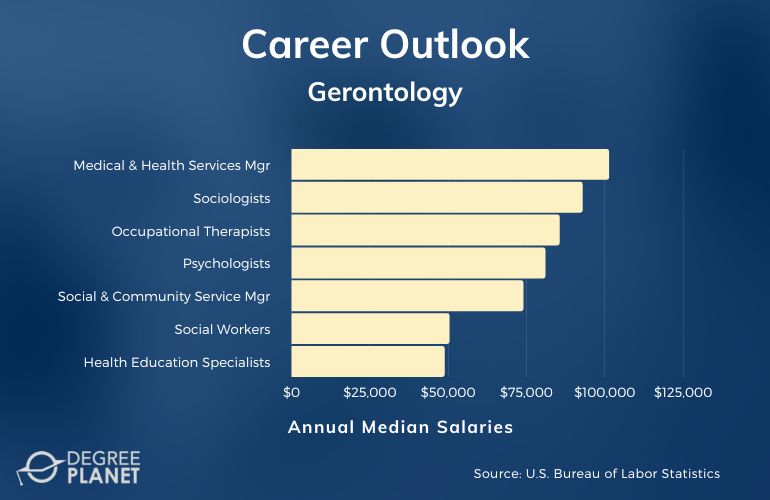
Gerontology is a diverse field. Many different professionals interact with older adults and could benefit from learning more about aging. What you do with this degree may depend on your previous education, your prior professional experience, and your graduate curriculum.
In some career paths, you can help older people maintain their physical skills or stay active. For example, you might work as a recreational therapist, an occupational therapist, or a rehabilitation counselor. You might do one of those jobs in a healthcare facility, a nursing home, or a community center.
You might also focus on helping seniors make healthy choices and connect to local healthcare services. Potential job titles in that area include community health worker and health education specialist. Some social workers specialize in helping older people. A gerontology master’s degree can help you learn how to provide relevant services to aging adults.
Editorial Listing ShortCode:
Some social workers are associated with hospitals. They may help people prepare to return home after an inpatient stay. Other social workers offer mental health services. There may be a role for you as a manager in a social service agency or a community nonprofit. Experience as a human service specialist or a social worker might help you move into a management position.
Medical facilities that serve older populations may need your managerial skills as well. One common role—nursing home administrator—requires state licensure. Another option might be to head up a home health organization. A gerontology master’s degree often pairs well with a career in psychology. You might become a psychologist who offers counseling services to older people or one who researches the aging process.
Sociology is another research-related career you could pursue as a specialist in gerontology. According to the Bureau of Labor Statistics, careers involving community and social service pay an average annual salary of $48,410.
These are some of the careers that you may pursue with a master’s in gerontology, according to the BLS:
| Careers | Annual Median Salaries |
| Medical and Health Services Managers | $101,340 |
| Sociologists | $92,910 |
| Occupational Therapists | $85,570 |
| Psychologists | $81,040 |
| Social and Community Service Managers | $74,000 |
| Social Workers | $50,390 |
| Health Education Specialists and Community Health Workers | $48,860 |
| Recreational Therapists | $47,940 |
| Rehabilitation Counselors | $38,560 |
| Home Health and Personal Care Aides | $29,430 |
To qualify for some of these positions, you may need other degrees, licenses, or work experience in addition to your gerontology master’s degree.
Master in Gerontology Curriculum & Courses

If you pursue your gerontology master’s degree online, you’ll likely take classes that are similar or the same as those found in on-campus programs.
These are some of the courses you may take:
- Death and Grief: This course is intended to prepare you to work with the dying and equips you with ways to support grieving loved ones.
- Development of Older Adults: This class focuses on the physical, emotional, social, and cognitive changes that occur as people age.
- Diversity: You’re likely to interact with a wide variety of older adults during your career, so this course can an important part of your preparation.
- Health of Older Adults: This course explores common health concerns among seniors and ways to support healthy choices and connect people to healthcare services.
- Introduction to Gerontology: This class is an overview of gerontology and typically involves studying the various professional disciplines associated with gerontology.
- Program Leadership: A class on programming in this field will likely include strategies for evaluating community needs, developing relevant solutions, launching new programs, and analyzing their effectiveness.
- Psychology of Aging: This class explores the ways that growing older affects thoughts and behaviors and may also teach some foundational counseling skills.
- Research in Social and Behavioral Science: This class teaches how to properly read research reports and design studies.
- Social Issues in Aging: This class addresses problems and concerns that older adults face and discusses policies or services that may help.
- Views on Aging: As you consider cultural attitudes toward aging and the treatment of older adults, you may discuss ethics too.
Graduate programs in gerontology often encompass between 30 and 45 credit hours’ worth of classes. The programs may include practicum experiences in addition to coursework.
How to Choose an Online Masters in Gerontology Program

For a successful college experience, you’ll want to select the graduate program that’s the best fit for you. These are some factors you can consider when choosing the best program for you:
- Accelerated degree plans: If you’re just getting started on your college path, you might want a school where you can complete a joint bachelor’s-master’s program. This can give you the opportunity to earn both degrees in a condensed timeframe.
- Concentrations: Many colleges have generalist gerontology programs. If you have a particular concentration in mind, that could narrow down your choice of schools.
- Degree type: Some programs are for a Master of Science (MS) in Gerontology. Others are for a Master of Arts (MA) in Gerontology. The MS usually has a heavier science emphasis, while the MA usually emphasizes the humanities.
- Industry alignment: You may want to choose a school that belongs to the Academy for Gerontology in Higher Education (AGHE) and aligns with its educational guidelines.
- Online approach: For the greatest flexibility, you might prefer a college with asynchronous classes. Asynchronous classes do not meet at set times.
- Practicum opportunities: Many programs require a practicum. You may want to research whether the school you’re interested in has resources available for helping you secure a practicum site in your local area.
Every school has different characteristics, so weighing the pros and cons of each can help you make your decision.
Admissions Requirements

The admissions processes for different gerontology graduate programs will vary, but there are typically similarities between programs.
In addition to the application form, you may need to provide the following:
- GRE results or other entrance exam scores (not required by all colleges)
- Letters of reference
- Personal statement about your experience in gerontology and your goals for the future
- Resume or curriculum vitae
- Transcripts from the school where you earned your bachelor’s degree and any other colleges attended
Graduate programs can be competitive, so you may not gain admission to every school on your list. It’s smart to apply to several colleges and make your final decision once you receive acceptance letters.
Gerontology Masters Online Accreditation
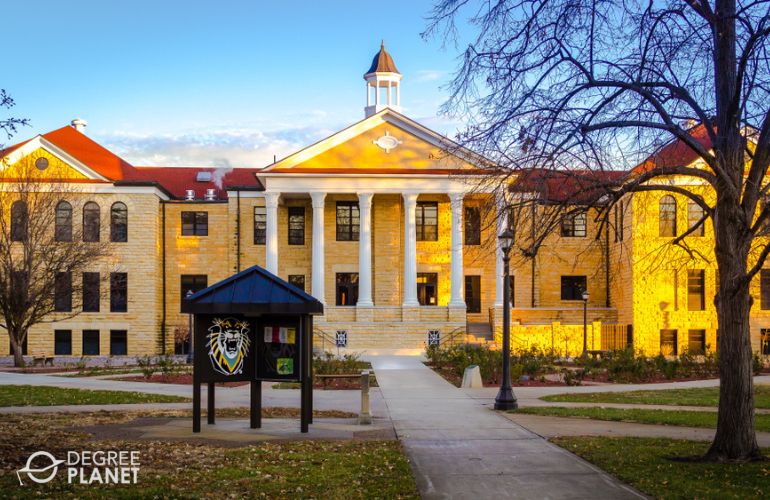
Typically, the most respected and reputable colleges hold regional accreditation. Regionally accredited universities are generally recognized as good schools where students can obtain a quality education. Both online and traditional colleges can be regionally accredited.
One benefit of regional accreditation is that it may help you transfer your classes from one school to another. Getting your graduate degree from a regionally accredited college may also show that you’re ready for doctoral-level work.
Editorial Listing ShortCode:
Accredited studies could help you secure a good job too. Many employers will be more reassured to know that your degree came from a school that has met the approval of an accrediting organization.
Financial Aid and Scholarships

Students often seek help with paying for graduate studies. You might benefit from financial aid programs too. Your first step will likely be to fill out the Free Application for Federal Student Aid (FAFSA). By doing so, you can find out what federal loans and aid you qualify for. Your state may loan you money too.
Government financial aid includes grants in addition to loans, but they’re aimed primarily at undergraduate students. There may be some grant programs for which you qualify, though. As a graduate student, you might be eligible for assistance from your school. Some colleges have scholarship programs for qualifying gerontology students. Others offer tuition discounts to those assisting with teaching or research.
You may be able to earn scholarships from other organizations also. In fact, some groups have scholarships especially for students who care for aging adults. Do you currently hold a job related to gerontology? If so, your employer may help fund your educational endeavors.
Gerontology Professional Organizations

You can gain support and ideas through your membership in a professional gerontology organization. Joining a group is often a good way to sharpen your skills and grow your network.
Groups you may want to consider include:
- American Society on Aging (ASA)
- Gerontological Society of America (GSA)
- Professional Association of Health Care Office Management (PAHCOM)
As a member, you may be entitled to professional discounts and an array of other benefits. Your group may offer newsletters, journals, online training, or conferences. Professional associations often do advocacy work as well.
What Can You Do with a Masters in Gerontology?

With a degree in gerontology, you might be a good candidate for working as a health educator, a community program director, or a nursing home administrator. The Bureau of Labor Statistics says that the average salary for nursing home managers is $83,550.
This graduate degree could help your career as an occupational therapist or a social worker. Gerontology studies can be a good supplement to specific training for those industries. Some people study gerontology with research careers in mind. You might work as a psychologist or a sociologist who explores public policy, behavior, or culture in relation to aging.
How Long Does It Take to Get a Master of Gerontology Online?

If you’re a full-time student, it may only take 1 to 2 years to get your master’s in this field. Non-thesis programs are usually the quickest to complete.
Often, online master in gerontology programs are quicker to complete than on-campus programs. That’s because online colleges often use accelerated calendars. The course terms are often short and held back-to-back throughout the year.
Editorial Listing ShortCode:
If you attend part-time, it will likely take longer to graduate. At some schools, it commonly takes part-time students 4 years to complete the program.
How Much Money Can You Make with a Gerontology Master’s Degree?

According to the Bureau of Labor Statistics, health and medical services managers, such as nursing home administrators, earn between $60,780 and $205,620 annually. Community service managers make between $46,550 and $118,650.
Your salary may depend on your professional background. For instance, licensed occupational therapists typically earn annual salaries between $60,680 and $123,840. Social workers’ salaries are usually between $36,520 and $82,840. If you choose a research career, you might earn $60,770 to $135,420 annually as a sociologist.
What’s the Difference between a Master’s Degree in Gerontology vs. Geriatrics?
The words “gerontology” and “geriatrics” have similar roots, but they refer to two somewhat different fields. This comparison chart can help you learn the differences:
| Gerontology | Geriatrics |
|
|
A geriatrics degree pairs with medical training, but a gerontology degree is compatible with many different educational backgrounds.
Is a Masters Degree in Gerontology Worth it?

Yes, a masters degree in gerontology is worth it for many students. The US population is growing older. The more experienced professionals there are to meet seniors’ needs, the better.
Editorial Listing ShortCode:
There’s a growing demand for many gerontology-related roles. The Bureau of Labor Statistics projects that jobs for community and social service managers will grow at a 12% rate over the next 10 years. The need for occupational therapists is projected to rise by 14%. For roles in medical and health services management, job growth is projected to rise by 28%.
Universities Offering Online Masters in Gerontology Degree Program
Methodology: The following school list is in alphabetical order. To be included, a college or university must be regionally accredited and offer degree programs online or in a hybrid format.

Concordia University—Chicago offers an online program for a Masters in Gerontology. The program is fully online, and all courses are asynchronous. Each course is 8 weeks long. There are start dates every 8 weeks throughout the year. Students must complete a total of 33 credit hours. Each class has less than 20 students to allow for peer interaction.
Concordia University – Chicago is accredited by the Higher Learning Commission.
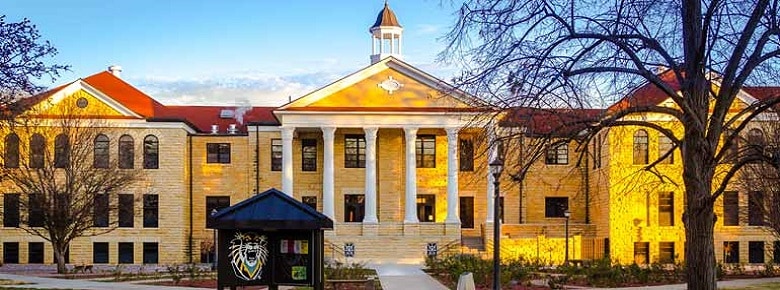
Students at Fort Hays State University can earn an MLS with a concentration in Gerontology fully online. Students must complete 10 credit hours of core MLS courses and 6 credit hours related to gerontology. Students may then choose electives related to gerontology and their desired line of work. A capstone project is required.
FHSU is accredited by the Higher Learning Commission.
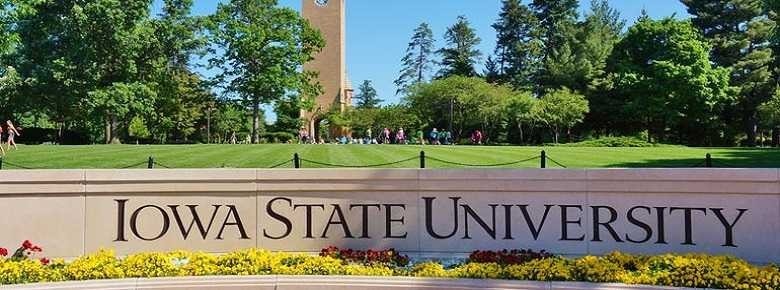
Iowa State University offers students a Masters of Family and Consumer Sciences with a specialization in Gerontology. The program requires the completion of 36 credit hours, 24 of which are from core courses and 8 of which are from elective courses pertaining to the student’s career. Students may earn 3 elective credit hours from a practicum experience.
Iowa State University is accredited by the Higher Learning Commission.

Students can earn an MS in Gerontology from Kansas State University. The program is fully online. Students are required to complete 30 credit hours. Students can choose electives to customize their learning or choose the Long-Term Care Administration specialization. The final 3 credit hours are earned from a culminating experience. The curriculum consists of courses like Adult Development and Aging.
Kansas State University is accredited by the Higher Learning Commission.

The University of Florida offers an MS in Medical Sciences with a specialization in Gerontology. The program requires the completion of 36 credit hours. Courses are entirely online and asynchronous to help fit students’ busy schedules. No thesis is required. The program has start dates in the fall, spring, and summer. The curriculum consists of classes such as Biology of Aging and Anti-Aging Interventions.
The University of Florida is accredited by the Southern Association of Colleges and Schools Commission on Colleges.
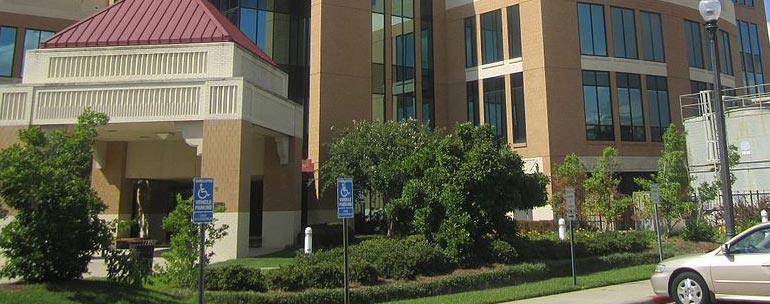
Students at the University of Louisiana—Monroe can earn an MA in Gerontology. The program requires the completion of 36 credit hours and can be completed entirely online. Some students may be eligible for graduate assistantship. Students can choose from 6 specializations: Program Administrator, Aging Studies, Long-Term Care Administration, Small Business Management, Mental Health, and Grief Care Management.
The University of Louisiana Monroe is accredited by the Southern Association of Colleges and Schools Commission on Colleges.

Students can earn an MA in Gerontology through the University of Nebraska—Omaha. The program requires the completion of 36 credit hours. Students can choose two pathways based on their future careers. The thesis option is designed to prepare students for research in the field. The non-thesis option includes a practicum and aims to prepare students for work in gerontology.
UNO is accredited by the Higher Learning Commission.

Online Schools Report ranked the University of North Carolina—Greensboro’s MS in Gerontology program as the Best Online Master’s in Gerontology. To graduate, students must complete 30 credit hours and a capstone experience. The program is completely online and features 7 week courses. Students may complete this degree as part of an accelerated BS to MS.
The University of North Carolina at Greensboro is accredited by the Southern Association of Colleges and Schools Commission on Colleges.
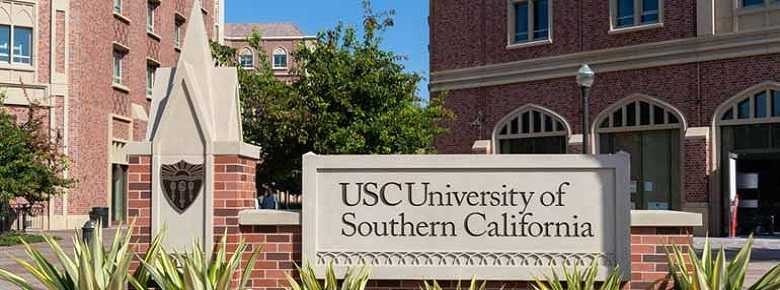
The University of Southern California offers an MS in Gerontology. The program requires the completion of 44 credit hours, including 32 core credits and 12 elective credits. The program’s courses are offered fully online, with starting dates in the fall and spring. Students are required to complete a practicum for field experience and a capstone project.
The University of Southern California is accredited by the Western Association of Schools and Colleges, the Senior College and University Commission.
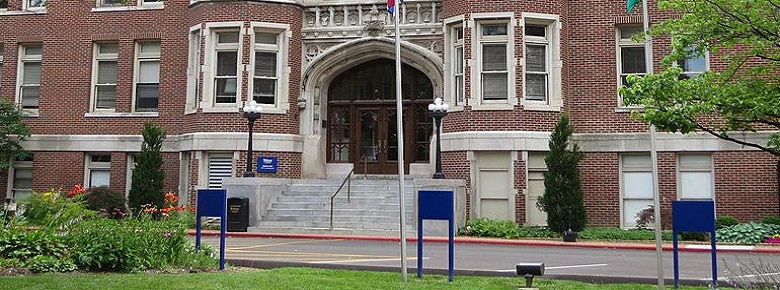
Students at Webster University can earn an MA in Gerontology. The program requires the completion of 36 credit hours, 24 of which must be from required core courses. For the remaining 12 credit hours, students may choose electives related to their career paths. The program is offered fully online. The curriculum consists of courses like Economic Issues for Older Adults and Physiology of Aging.
Webster University is accredited by the Higher Learning Commission.
Getting Your Masters in Gerontology Online

For many, gerontology can be a fulfilling career choice. As an expert in aging services, you will have opportunities to support people in their later years.
Whether your goal is to work in healthcare, social services, research, or another field, studying gerontology could help round out your skill set. Gerontology studies are available online. In fact, many schools allow the full degree to be earned through distance learning.
Accredited schools offer online programs that are equivalent to on-campus ones. These programs can help equip you to make a difference in the lives of older adults and their loved ones. Ready to get started? You can begin by exploring the options for accredited online gerontology degree programs.

